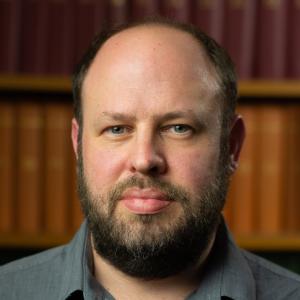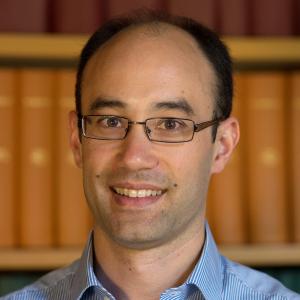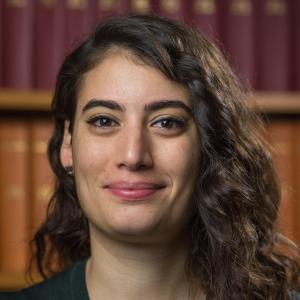State-dependent control of hippocampal oscillations for enhancing memory
Project
State-dependent control of hippocampal oscillations for enhancing memory
Hippocampal neurons support memory through temporally precise coactivity patterns that enable the rapid encoding, consolidation, and retrieval of behaviourally relevant information. This process is facilitated by several prominent network oscillations, which coordinate the timing of neuronal population activity in the hippocampus and its associated neuronal circuits. In rodent models of Alzheimer’s disease, the core properties of theta and gamma oscillations are disrupted, interfering with memory encoding and retrieval processes. Additionally, sharp-wave ripples become weaker, impairing memory reactivation. Restoring these oscillatory activities to their normative state using closed-loop brain stimulation holds promise for alleviating the memory deficits associated with Alzheimer’s disease. Achieving this will require the development of approaches that can reliably modulate memory-related oscillations using approaches that can be implemented on human brain stimulation devices.
The overarching goal of this PhD studentship is to develop, optimise, and implement closed-loop stimulation strategies that can enhance the oscillatory neural activities underpinning memory processing. We can already amplify specific oscillatory patterns by delivering stimulation based on their instantaneous power and phase. However, to fully exploit these approaches, they should be applied during the specific behavioural states (e.g., exploration, rest, sleep) associated with each oscillatory activity. For translation into therapeutic applications, this state-dependent control must be fully automated and resilient to artefacts introduced by the stimulation itself. Where phase-targeted stimulation is used, the optimal phase for achieving a specific outcome parameter will also need to be determined automatically. The student project will focus on integrating these approaches into a unified framework and testing them in behaving rodents, in collaboration with other members of the research team.
The project will take place in the Brain Network Dynamics Unit of the Nuffield Department of Clinical Neurosciences and in the Medical Research Council Centre of Research Excellence in Restorative Neural Dynamics (MRC CoRE RND). Students will benefit from the extensive interdisciplinary skills training and personalised career development opportunities available within the Unit and the MRC CoRE RND. Students will receive specialised training in their areas of project research (see below) as well as, for example, in the translation and commercialisation of research, best practice in Open Science, and how to effectively involve and engage patients and the public with research.
The studentship holder will receive training in the development and validation of closed-loop algorithms, and their implementation across a range of hardware platforms (e.g. FPGA, embedded processors). You will gain extensive skills in analysing neural data from behaving animals and will have the opportunity to develop expertise in performing high-density recordings in rodents performing cognitive tasks during electrical and/or optogenetic stimulation. As part of the wider team, you will also gain valuable insight into the development of neuromodulation approaches for clinical applications.
This four-year Ph.D. (D.Phil.) studentship offers three years of full-time tuition fees at the Home rate, and four years of non-taxable stipend at the full-time UKRI rate (including any uplifts announced). Both Home students and International students are eligible to receive this funding package. Please see further details about MRC/UKRI studentships and updated guidance regarding Home and International eligibility. Successful offer-holders who have applied by the December deadline may also be considered for other University of Oxford scholarships.
Interested candidates should possess, or expect to receive, a 1st class or upper 2nd class degree (or equivalent) in computer science, engineering or mathematics. Candidates with equivalent qualifications in biological/physical sciences or medicine and who can also demonstrate considerable programming experience will also be considered. Previous experience in neuroscience research is desirable.
Candidates must contact the lead project supervisor before submitting an application. To find out more about this studentship, the research project, and the application process, please contact Professor Andrew Sharott by email on andrew.sharott@ndcn.ox.ac.uk.
To be considered for this studentship, please submit an application for admission to the D.Phil. in Clinical Neurosciences at the Nuffield Department of Clinical Neurosciences (course code RD_CU1), following the guidance for applications to this course. On the application form, in the section headed ‘Departmental Studentship Applications’, please indicate that you are applying for a studentship and enter the reference code “26NDCN01MRC” into the funding tab.
The closing date for applications is 12.00 midday UK time on Tuesday 2nd December 2025.
Opening in November 2025, the MRC CoRE RND is an exciting team science enterprise that is focused on harnessing the moment-to-moment interactions between nerve cells (‘neural dynamics’) to transform medical device-based therapy for brain conditions. The MRC CoRE RND incorporates discovery research and translational research aligned to empirical neuroscience, computational neuroscience, experimental medicine, and biomedical engineering. The MRC CoRE RND is exceptionally collaborative, involving partners in academia, neurotechnology industry, research charities, and clinical services. It will champion values supporting a positive research culture.
Supervisors
Applications are invited from both Home students and International students to join a multidisciplinary team of researchers studying the state-dependent control of brain oscillations for enhancing memory. This studentship is available from the start of academic year 2026/27, is for 4 years, and will be co-supervised by Professor Andrew Sharott, Professor David Dupret and Professor Hayriye Cagnan at the MRC Centre of Research Excellence in Restorative Neural Dynamics.


